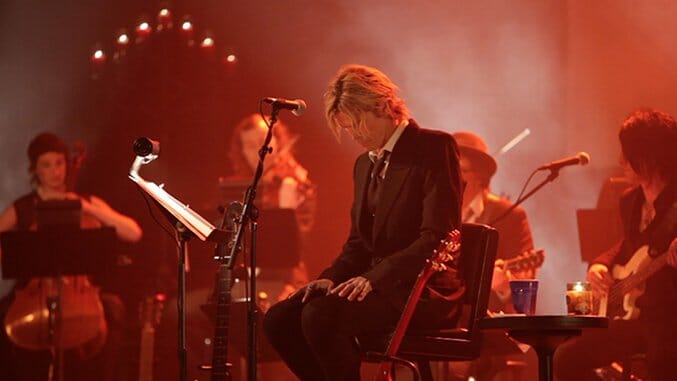It’s So Easy to Direct a Documentary, and Other Lies
Filmmaker James Winn talks to Christopher Duddy about his new Duff McKagen doc, It's So Easy and Other Lies.

When we heard there was an innovative new documentary, It’s So Easy and Other Lies, coming out about Duff McKagan (bass player for Guns N’ Roses) we knew exactly whom to put on the case. Filmmaker Jason Winn (The Fat Boy Chronicles) is a longtime friend of the magazine, and an even longer-time GnR fanatic. Sure enough, he devoured the movie and couldn’t wait to interview its director, Christopher Duddy. What’s it like making a documentary about one of the hardest rocking bands ever?
Paste Magazine: I really loved the movie.
Christopher Duddy: Oh good, you had a chance to see it?
Paste: Yep, I watched it last night. I mean, first of all, I’m a Guns N’ Roses fan from 25 years back.
Duddy: Yeah, me too!
Paste: But more than that, just as a filmmaker, I was really impressed with your artistic choices as to how to tell what could be kind of a similar story to what we’ve seen a lot before. So: Tell me about the genesis of this whole project.
Duddy: Duff and I were friends first. We were neighbors and we actually met walking our kids to school about ten years ago. And we just shared a love of sports, and being dads. I was taken aback by how down-to-earth he was, and how much we had in common. We were friends for about five years before he wrote the book, and when he wrote it he asked me to read it. And of course I did. I knew his story from Guns N’ Roses forward, but I didn’t really know anything about his past. So when I read the book, it was really interesting where he came from, and where he is, and how he accomplished that. It’s a very inspirational story, right?
Paste: Totally.
Duddy: As a filmmaker, I love inspirational stories. So I kind of mentioned that we should do a documentary of it. And he said no. He probably said no the first ten times I mentioned it. But I kept pushing on him, because I just think his story is so great. Finally, when his book was coming out in paperback, he said, “Why don’t you start following me around with a camera, and we’ll use it for press for the book release?” He was doing morning shows and stuff, and we were shooting B-roll. I didn’t know what it would turn into.
I thought we’d find something eventually as to what the movie was going to be. This went on for about six months, and he said, “Hey, will you go to Cleveland with me? We’re getting inducted into the Hall of Fame.” And I said, “Holy shit, of course I’ll go.” He said, “The induction’s on Saturday, but come Friday because I’m doing this book reading show.” I didn’t even know what that was. I went to the House of Blues with my camera bag strapped to my shoulders, and he said, “Can you carry my bass?” [Both laugh.]
So he starts the show, and he’s reading pieces out of his book, and his band Loaded is scoring it. And I thought, This is really cool! The House of Blues was packed. It was sold out. And I just was taken aback by how the audience responded to this book-reading show. Afterwards I was going to go back to the hotel, and he said, “No, stay—Slash and the guys are going to come in and we’re going to rehearse.”
Paste: Oh my God.
Duddy: They hadn’t played together for like 20 years, all of them together. At first he was like, “You can’t shoot this.” But then I pulled out my camera for like the third song and sort of had it on my lap shooting. And then after a couple of hours, I was up on the stage with my camera, shooting, and everyone was into it. Hardly any of that is in the movie, maybe none of it.
-

-

-

-

-

-

-

-

-

-

-

-

-

-

-

-

-

-

-

-

-

-

-

-

-

-

-

-

-

-

-

-

-

-

-

-

-

-

-

-








































